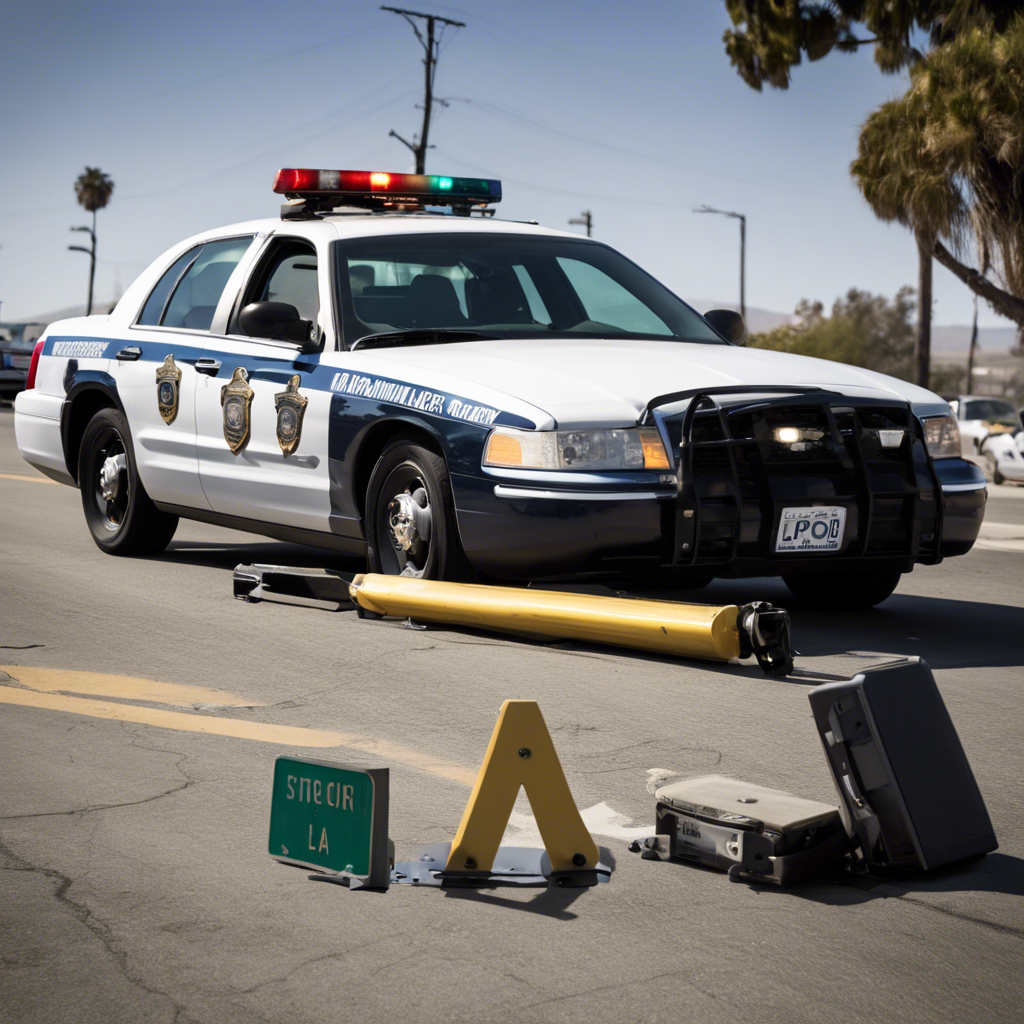Automated License Plate Reader Leads to Arrest in Los Angeles Quadruple Homicide

Controversial Technology Proves Effective in Solving Crime, Raises Privacy Concerns
In a breakthrough for law enforcement, Los Angeles police have successfully apprehended a suspect accused of committing four murders, thanks to the use of an automated license plate reader (ALPR). The technology, which scans and records license plate numbers, has proven to be a valuable tool in solving crimes. However, its implementation has also sparked a heated debate surrounding privacy and potential misuse. In this article, we delve into the recent case in Los Angeles, examining how ALPRs work, the benefits they provide to law enforcement, and the concerns raised by critics.
The Role of Automated License Plate Readers in Crime Prevention
Automated license plate readers are high-speed cameras equipped with optical character recognition software that can quickly scan and capture license plate numbers. These devices are typically mounted on police vehicles or stationary structures, such as bridges or toll booths. The captured data is then compared to databases of stolen vehicles, wanted criminals, or other law enforcement records. When a match is found, an alert is sent to the officer, enabling them to take appropriate action.
The Los Angeles Quadruple Homicide Case
In the recent Los Angeles quadruple homicide case, the ALPR played a crucial role in identifying and apprehending the suspect. The suspect’s vehicle was captured by an ALPR camera near one of the crime scenes, providing investigators with a vital lead. With this information, the police were able to track the suspect’s movements, ultimately leading to his arrest. The successful outcome highlights the potential of ALPR technology in solving complex crimes.
Benefits of Automated License Plate Readers
ALPRs have proven to be an invaluable tool for law enforcement agencies. By automating the process of scanning license plates, these devices save officers significant time and effort. They enable police to quickly identify stolen vehicles, locate suspects, and gather evidence. In addition to solving crimes, ALPRs also act as a deterrent, as potential criminals are aware of the technology’s ability to track their movements. This has resulted in a decrease in vehicle-related crimes in cities where ALPRs are deployed.
Privacy Concerns Surrounding ALPRs
While the use of ALPRs has undoubtedly aided law enforcement, it has also raised concerns about privacy and potential abuse. Critics argue that the mass collection and storage of license plate data infringe on individuals’ rights to privacy. The data collected by ALPRs can reveal sensitive information, such as a person’s location history, daily routines, and associations. There are concerns that this information could be misused or accessed by unauthorized individuals, leading to potential abuses of power.
Balancing Security and Privacy
Finding the balance between security and privacy is a complex challenge. Law enforcement agencies argue that ALPRs are crucial for public safety and crime prevention. They emphasize that strict protocols and regulations are in place to govern the use and storage of ALPR data. However, critics argue that these safeguards are not sufficient and that more stringent regulations are needed to protect individuals’ privacy rights. Striking the right balance between effective crime-fighting tools and safeguarding civil liberties remains an ongoing debate.
Conclusion:
The recent arrest in the Los Angeles quadruple homicide case showcases the effectiveness of automated license plate readers in solving complex crimes. While ALPR technology has undoubtedly proven to be a valuable tool for law enforcement, it also raises legitimate concerns about privacy and potential abuse. Striking a balance between public safety and protecting individual rights is crucial. As technology continues to advance, it is imperative that robust regulations and oversight mechanisms are in place to ensure the responsible and ethical use of ALPRs. Only then can we harness the full potential of this technology while safeguarding the privacy and civil liberties of individuals.










